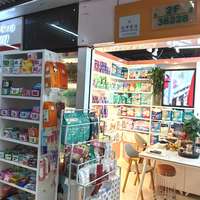The evolution history of sanitary napkins: from traditional to innovative comfortable experience
In the long river of human civilization, women's physical health has always been an indispensable part of social progress. And sanitary napkins, this seemingly insignificant but crucial daily product, their development process is not only a microcosm of technological progress, but also a witness to the continuous deepening of women's care concepts. From the initial primitive methods to the innovative products brought by brands such as Yiwu Haglebo Daily Necessities, the evolution history of sanitary napkins has written a chapter about comfort, health, and respect.
Tradition: Exploration and Limitations of Nature
Looking back at history, women's coping strategies during menstruation often rely on natural materials such as cloth, leaves, or papyrus. Although these primitive methods embody the wisdom of harmonious coexistence between humans and nature, they have many limitations in terms of hygiene and comfort. Frequent replacement and cleaning are not only time-consuming and labor-intensive, but also difficult to effectively prevent bacterial growth, posing a potential threat to women's health.
Modern Times: The Beginning of Commercialization
With the arrival of the industrial era, sanitary napkins began to enter the stage of commercial production. The earliest commercial sanitary napkins were mostly made of cellulose materials. Although there has been a qualitative leap compared to traditional methods, there is still room for improvement in terms of water absorption, breathability, and leak prevention. During this period, sanitary napkins gradually became a necessity in women's lives, but their design often overlooked individual differences and comfort needs.
Modern: Pursuit of Innovation and Comfort
In the 21st century, with the rapid development of technology and the awakening of women's consciousness, the sanitary napkin industry has ushered in unprecedented changes. Yiwu Haglebo Daily Necessities, as a leader in the industry, has brought more comfortable and healthy sanitary napkin products to women with its keen market insight and continuous innovation spirit.
At Unit A1 on the second floor of Gate 87 in Zone 4 of Yiwu International Trade City, Haglebo Daily Necessities showcased its rich product line, covering sanitary napkins of various materials, sizes, and functions. From ultra-thin to night extended, from organic cotton materials to high-tech absorbent cores, every product is designed to meet the personalized needs of different women. Especially with its innovative three-dimensional cutting and soft surface design, it effectively reduces friction and discomfort, allowing women to enjoy the usual freedom and comfort during their menstrual period.
In addition, Haglebo also focuses on environmental protection and sustainable development, and some products use biodegradable materials to reduce their impact on the environment. This sense of social responsibility has not only won the trust of consumers, but also set a new benchmark for the entire industry.
Future: Integration of Technology and Care
Looking ahead to the future, with the continuous integration of intelligent technology, sanitary napkins will develop towards a more intelligent and personalized direction. The application of intelligent chips will enable sanitary napkins to have functions such as monitoring health indicators and reminding replacement time, providing women with more comprehensive health management solutions. Meanwhile, with the increasing emphasis on women's care in society, the design of sanitary napkins will pay more attention to details and emotional needs, becoming an important bridge connecting women's physical and mental health.
In short, the evolutionary history of sanitary napkins is an epic about innovation, comfort, and respect. From tradition to modernity, and to the infinite possibilities of the future, every transformation embodies a deep concern and relentless pursuit for women's health. The rise of brands such as Yiwu Haglebo Daily Necessities is the best interpretation of this concept.

